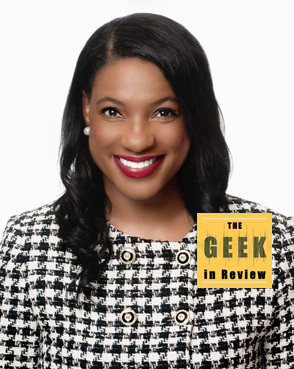 This week on The Geek in Review, Marlene Gebauer and Greg Lambert talk with Curt Meltzer, principal of Meltzer Consulting, LLC. Meltzer has over 40 years of experience in the legal and legal tech industry. He discusses his interest in pro bono and community outreach programs in law firms and legal tech companies. He notes that while 95% of AmLaw 200 law firms highlight pro bono work on their websites, many legal tech companies do not prioritize these efforts.
This week on The Geek in Review, Marlene Gebauer and Greg Lambert talk with Curt Meltzer, principal of Meltzer Consulting, LLC. Meltzer has over 40 years of experience in the legal and legal tech industry. He discusses his interest in pro bono and community outreach programs in law firms and legal tech companies. He notes that while 95% of AmLaw 200 law firms highlight pro bono work on their websites, many legal tech companies do not prioritize these efforts.
Meltzer emphasizes that pro bono and community work is good for business. It enhances company culture, helps with recruiting and retaining top talent, and strengthens customer relationships. He argues that legal tech companies should consider emulating their law firm clients’ community programs. This could include donating software or services, allowing employees paid time off for volunteer work, or collaborating directly with organizations that law firm clients support.
Meltzer highlights LexisNexis and Thomson Reuters as leaders in the legal tech industry for their work promoting access to justice and the rule of law around the world. However, he notes that companies of any size can contribute, whether through recognizing employees who volunteer or donating resources. He published a list of 41 legal tech companies that do highlight community outreach on their websites to raise awareness, though he found 39 companies with no mention of such efforts.
Meltzer sees both opportunities and challenges ahead. Private equity investment in legal tech companies may prioritize short-term profits over community programs. However, companies that do not respond to customer interest in their pro bono and corporate social responsibility initiatives risk losing business to competitors. Overall, Meltzer aims to foster conversations about strengthening the relationship between the legal tech community and the broader community. Corporations that embrace ESG programs and give back to the communities they serve will thrive.
Listen on mobile platforms: Apple Podcasts | Spotify
Contact Us:
Twitter: @gebauerm, or @glambert
Voicemail: 713-487-7821
Email: geekinreviewpodcast@gmail.com
Music: Jerry David DeCicca
Transcript
Continue Reading Curt Meltzer on Why Legal Tech Companies Should Give Back: The Business Case for Pro Bono, A2J, and Community Outreach (TGIR Ep. 207)















